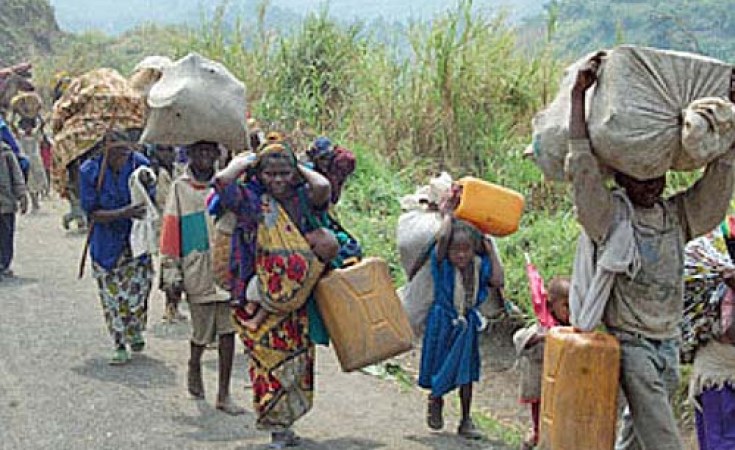Kinshasa — Last week, the United Nations High Commissioner for Human Rights released a crucial report that describes the atrocities committed in the Democratic Republic of Congo (DRC) during its successive wars from 1993 to 2003.
The scale of suffering is staggering. The range of perpetrators is enormously complex. What is evident, however, is the importance of swift and targeted responses that deliver justice to the Congolese people.
We cannot ignore the need for a response to these international crimes. Judicial accountability remains key to ending the country's history of violence and brutality. In the east, massacres, rapes, and pillage are a routine, wretched reality. Pervasive lawlessness has allowed its biggest group of perpetrators – the Congolese army – to operate without fear of being held accountable.
The publication of the report is a critical step towards breaking the cycle of impunity that has fed the crimes that continue today. It comprehensively describes the gravity of the violence, much of which was directed at women and children, and the chronic failure to respond with any measure of justice.
Many suspected perpetrators of past crimes hold positions in the Congolese government and the army. Who they are is no secret. Certain political officials who took public positions to encourage or provoke these violations, for example, are named in the report.
Also, the High Commissioner now possesses a confidential database of alleged perpetrators, presenting a powerful tool for future judicial investigations. If these individuals are not brought to justice, what is the incentive to do the same for the present perpetrators of violence in the east?
The United Nations Security Council must remain active and push the Congolese government, some of whose most senior members are implicated in the crimes described, to follow the report's recommendations. In keeping with its "responsibility to protect" mandate, the council should address the UN report and initiate judicial and other measures to hold perpetrators accountable.
The report's recommendations for a hybrid criminal tribunal with international and national staff, and a truth and reconciliation commission, for example, demand immediate and serious consideration and support. These measures must be a priority, given the chronic failure to improve the security situation in the east, demonstrated graphically recently by hundreds of recent rapes in the Walikale region.
Truly breaking the country's cycle of impunity and violence also requires a major commitment to reform the country's justice and security systems. Only 12 military trials have been held since 1993 for war-related crimes. Despite long-standing calls to do so, the Congolese government has yet to identify and remove past human rights abusers from the army, police and other security forces. International logistical and other support for the security sector must be made conditional on necessary institutional reform, otherwise we risk supporting an unacceptable status quo.
The Congolese army is not the only state actor implicated: the UN report found a host of state armies – including those of Rwanda, Uganda and Burundi – and the proxy rebel groups they controlled to be responsible for crimes.
When a draft version of the report was leaked to the press in August, the government of Rwanda reacted angrily to findings of possible genocide of Rwandan Hutu refugees - who had fled to Congo - by Rwandan-controlled armed factions from 1996 to 1997. In response to the press reports, Kigali threatened to pull Rwandan peacekeepers out of the UN.
Last month's visit to Rwanda by UN Secretary General Ban Ki-moon should not be interpreted as a way of shielding Rwanda from the consequences of the actions of its army and proxies in the DRC. On the contrary, the severity of the atrocities that were committed and the violence endured merit a strong commitment to international justice, regardless of the alleged perpetrator.
The alleged crimes perpetrated by Rwanda remain only part of the story. The complexity of the situation underscores the importance of establishing an independent, internationally-supported judicial mechanism to investigate past abuses and deliver justice across the board. It is vital that the government of the DRC, as well as those of Rwanda and Uganda, act to support its creation.
The Congolese have borne enormous pain. A holistic approach is essential for the country to heal and forge forward. The Security Council should support a national dialogue on the report, ahead of next year's Congolese elections. Perpetrators must be held criminally responsible, the truth of past and present abuses must be revealed, state institutions reformed, and victims should be provided with the means to recover. The peace and stability of the country depend on it.
David Tolbert, a legal expert and former deputy prosecutor at the Yugoslav tribunal, is president of the International Center for Transitional Justice (ICTJ). Suliman Baldo spent many years documenting violations in the DRC. He is a well known commentator on African justice issues and director of ICTJ's Africa program.


